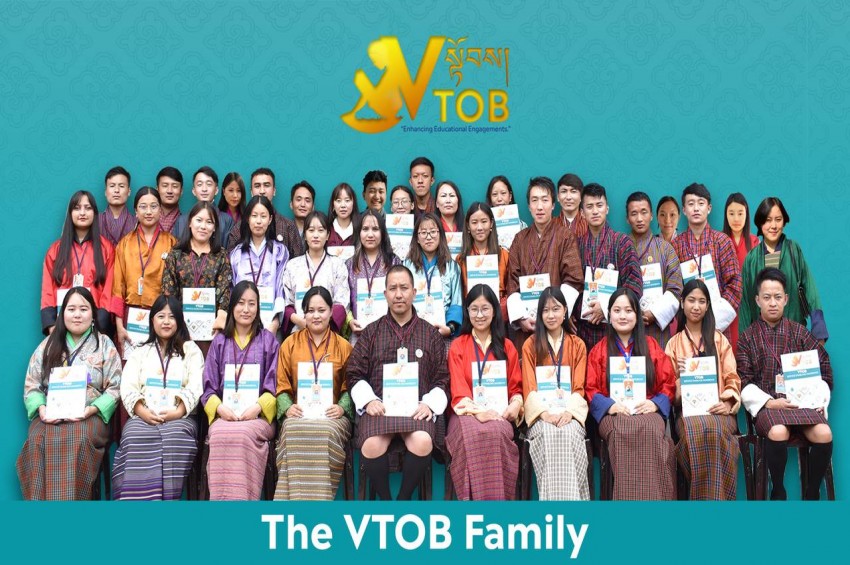The concept of Least Developed Country (LDC) was articulated in the year 1964 by United Nation with the categorization carried out by the Committee for Development Policy.
LDC are those countries belonging to low income, low level of human assets but highly susceptible to economic and environmental vulnerabilities.
Under the kingship of His Majesty the third Druk Gyalpo, Bhutan was categorized as a member of LDC on September 21, 1971.
According to the United Nations, “LDC are low-income countries facing severe structural impediments to sustainable development.”
This means countries that are marked by high rates of poverty, negative balance of payment, and undiversified economies resulting in low human capital.
United Nations defines LDCs through three criteria namely Gross National Income (GNI) per capita the Human Asset Index (HAI), and the Economic Vulnerability Index (EVI).
GNI takes into consideration the three-year average GNI per capita of a country, while HAI takes into consideration the various indicators that make up the human asset of a country, and EVI takes into account how susceptible a country’s economy is with the consideration given to a population, remoteness of the country, the share of agriculture, the likelihood of natural disasters, trade stability and other economic paradigms.
A country belonging to LDC is eligible to graduate from the LDC status if it fulfills any two or three of the criteria.
Bhutan has been found eligible to graduate from LDC status for the first time during the triennial review of 2015 and subsequently in the triennial assembly held on December 13, 2018.
However, upon Bhutan’s request to align graduation with the end of the 12th Five-Year Plan. Thus, our country is expected to graduate on 13th December 2023 and enter a middle-income country from a low-income.
Potential Negative Implications of Graduation for Bhutan
1. Increased Contribution to the UN system
2. Loss of Travel Assistance at UN Meetings
3. Loss of preferential trade or market access
4. Loss of potential schemes of WTO-developed country members
5. Decline in the Official Development Assistance (ODA)
Positive implications of Bhutan’s Graduation
1. Bhutan being eligible for LDC graduation Implies that the country has achieved some sort of progress in terms of its income. It means that the productive capability of the Bhutanese has increased.
2. It also implies that the country has realized huge development interns of human capital. It emphasizes that Bhutan has more literate, skilled, and competent people who can harness to country’s development.
3. The graduation also highlights that Bhutan has made significant efforts towards building economic resilience. It shows that progress has been achieved in broadening its economic base, diversifying its export base, reducing the impacts of natural disasters, and strengthening its productive capabilities.
For Bhutan’s smooth transition from LDC to a Developed nation, a Transition Strategy Taskforce (TST) was formed in April 2021. Thus, the Bhutanese regardless of their social standings need to work together as one for the country to be blessed with economic prosperity.
LDC are those countries belonging to low income, low level of human assets but highly susceptible to economic and environmental vulnerabilities.
Under the kingship of His Majesty the third Druk Gyalpo, Bhutan was categorized as a member of LDC on September 21, 1971.
According to the United Nations, “LDC are low-income countries facing severe structural impediments to sustainable development.”
This means countries that are marked by high rates of poverty, negative balance of payment, and undiversified economies resulting in low human capital.
United Nations defines LDCs through three criteria namely Gross National Income (GNI) per capita the Human Asset Index (HAI), and the Economic Vulnerability Index (EVI).
GNI takes into consideration the three-year average GNI per capita of a country, while HAI takes into consideration the various indicators that make up the human asset of a country, and EVI takes into account how susceptible a country’s economy is with the consideration given to a population, remoteness of the country, the share of agriculture, the likelihood of natural disasters, trade stability and other economic paradigms.
A country belonging to LDC is eligible to graduate from the LDC status if it fulfills any two or three of the criteria.
Bhutan has been found eligible to graduate from LDC status for the first time during the triennial review of 2015 and subsequently in the triennial assembly held on December 13, 2018.
However, upon Bhutan’s request to align graduation with the end of the 12th Five-Year Plan. Thus, our country is expected to graduate on 13th December 2023 and enter a middle-income country from a low-income.
Potential Negative Implications of Graduation for Bhutan
1. Increased Contribution to the UN system
2. Loss of Travel Assistance at UN Meetings
3. Loss of preferential trade or market access
4. Loss of potential schemes of WTO-developed country members
5. Decline in the Official Development Assistance (ODA)
Positive implications of Bhutan’s Graduation
1. Bhutan being eligible for LDC graduation Implies that the country has achieved some sort of progress in terms of its income. It means that the productive capability of the Bhutanese has increased.
2. It also implies that the country has realized huge development interns of human capital. It emphasizes that Bhutan has more literate, skilled, and competent people who can harness to country’s development.
3. The graduation also highlights that Bhutan has made significant efforts towards building economic resilience. It shows that progress has been achieved in broadening its economic base, diversifying its export base, reducing the impacts of natural disasters, and strengthening its productive capabilities.
For Bhutan’s smooth transition from LDC to a Developed nation, a Transition Strategy Taskforce (TST) was formed in April 2021. Thus, the Bhutanese regardless of their social standings need to work together as one for the country to be blessed with economic prosperity.

















